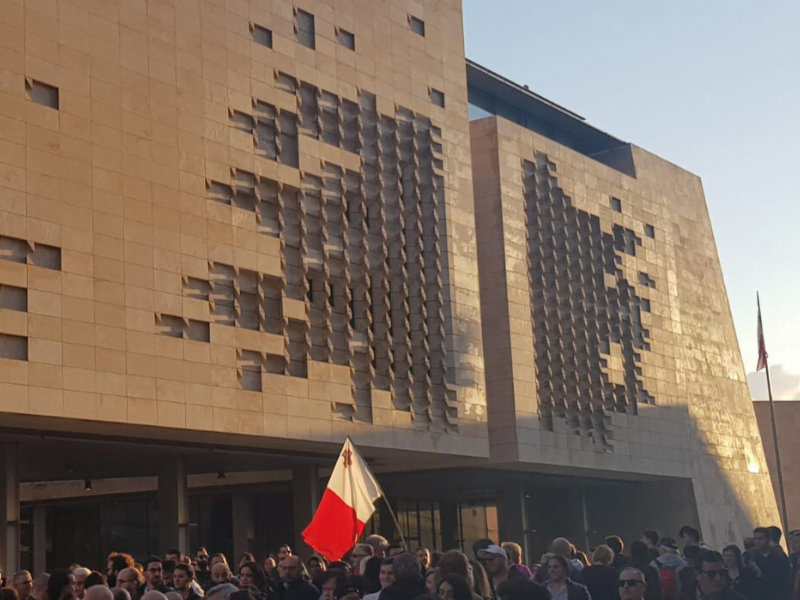As the PN settles into a stasis – another humdrum stretch in which energetic MPs operate seemingly independent of the Party while the Leader fiddles unimpressively – there has been renewed chatter of a new political party.
It’s an idea that is increasingly alluring given the PN Leader’s intention to stay despite being widely seen as the chief agent of PN’s electoral doldrums and intra-party divisiveness.
The idea is that voters orphaned from the PN deserve a proper home and that a new Party may break the proverbial mould. It’s an idea that was first broached in the midst of protests led by Repubblika and Occupy Justice late last year that attracted large crowds.
New Party hopefuls have to be mindful that the electoral landscape they would have to navigate may be changing, but it remains complex. There are currently two other Parties vying for overlapping voter cohorts or constituencies – AD and PD – and both have seen their electoral support atrophy. They are currently in talks over a possible merger.
One of the hurdles for a new Party’s chances of getting into parliament is structural. Unlike many countries in Europe, Malta has no national threshold that would allow a small Party, which garners a certain tally of national votes to be assigned a proportional number of parliamentary seats. Countries that have such a threshold normally set it at 5%.
In the days when AD was more vibrant, it campaigned intensively for changes to electoral law to introduce this national vote threshold, but the other Parties looked the other way. The feeling is that neither of them had an interest in helping a third Party achieve a breakthrough that would upset their divide-and-rule tactics, and their turns in government in which they benefit from the winner-takes-all tradition.
What has changed now is that this so-called duopoly is now in serious decline given the tumble that the PN has taken.
For upstart Parties, a national 5% threshold to gain entry into parliament would serve as a crucial pole on which a small Party could build its initial surge. For voters, it would provide the psychological comfort that their vote won’t be ‘wasted’ – something the big parties keep banging on about in a bid to discourage support at the fringe from drifting towards startups and small Parties.
For the country, the 5% threshold would serve to democratise and diversify the electoral system. It may even be essential for democracy in the current scenario of a dominant Party in government trailed by a hobbled Opposition.
Beyond the changes in electoral bars, the conditions may appear promising at the moment for a new Party. Hope lies in the protest movement and activism that has emerged following the assassination of Daphne Caruana Galizia, and opportunity lies in voters becoming more diversified and fragmented.
A new Party would have to stake out its ground strategically as the recent lacklustre performance of small Parties shows. The reality is that most voters remain gripped with a tribal mentality in which rivalry drives their voting choice: they vote to keep the “bastards” – the opposing Party, the PL or the PN – out of power.
The small Parties have also suffered from the image of being Parties of exclusion – an assembly of new politicians following a narrow ideological creed. That limits their resonance among the electorate, as opposed to the so-called ‘broad church’ assemblies of the larger, established Parties.
A similar issue is that the new politicians tend to be enthusiastic but inexperienced, and many of them experience burnout and disillusionment before they are able to mature into shrewd political actors.
Yet a chink of light for new Parties might be offered by recent trends of fragmentation in political allegiance, something that has already become yesterday’s story on the continent. Main centrist Parties that have dominated the electoral landscape since World War II are being cut down in size by Parties that further to the left or right.
The greens or liberals, as well as the nationalists (or far right), have all been making gains in most European countries at the cost of the centrists.
There have also been initial signs of such fragmentation in Malta. The electoral wobble has so far been towards the right: the far-right candidates got more votes in the European elections of last year than the AD and the PD combined. That shows that voters are showing greater willingness to break from their traditional allegiances.
More subtly, this is also happening in the main Parties. PN Leader Adrian Delia has recently found enthusiastic support from the more right-wing fringe within the PN – it’s the religious conservatives, assorted reactionaries, and anti-immigration populists who have been some of his most vocal supporters.
Among PN voters, latest surveys also show that support for Delia’s rattled leadership has held strongest in the south of Malta, where the sentiments of nationalism run commensurately strong.
Although it remains to be seen whether the PN leader will pivot to the right – his anti-immigrant rhetoric and fear-mongering on abortion in the European elections turned out to be a flop – the fluidity in electoral pockets of support indicates two things: fragmentation and volatility.
That creates openings for new political forces and alliances. It may also make the narrow focus of small parties one of their strengths.












